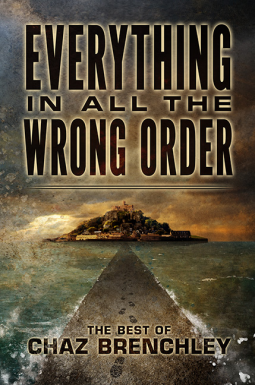Everything in All the Wrong Order: The Best of Chaz Brenchley, by Chaz Brenchley (Subterranean)
Anything I say about the short fiction of Chaz Brenchley
requires the disclaimer that he is a dear friend and colleague. Here’s the
story of how I met him: Years ago, the Science Fiction Writers of America (note
for the obsessive: it’s now the Science Fiction & Fantasy Association) had
a Circulating Book Program of books provided by publishers for consideration
for the Nebula Award. I made an effort to read at least the first few pages of
every book I received. I flipped open one such submission and read:
“Down in the Shine was Issel, dreaming.”
A shiver went down my spine because I knew with utter
certainty that here was a master of the craft. To begin a novel with such
compelling poetry! (And the book did not disappoint, being a thing to be
savored, not skimmed.) The book was Bridge of Dreams, by some Brit I’d
never heard of.
A few years later I had signed a contract to edit my first
anthology, Lace and Blade. I thought of that amazing opening line. I
contacted the author and asked if he would submit a story. He agreed. “In the
Night Street Baths” was set in the same world as Bridge of Dreams. I
loved every word of it. (So did readers, and other editors — it was reprinted
in a “Best of” anthology.)
So it made perfect sense that Chaz and I become personal
friends, at first meeting on those rare occasions when he visited the United
States, then more frequently once he’d moved to my home state. Since then I’d
had the joy of editing more of his work, as well as many rich conversations.
Am I biased when it comes to Chaz stories? You bet, I am!
So here’s a truly amazing collection to be enjoyed slowly
and reflectively, like fine wine. Share them with someone you love.





